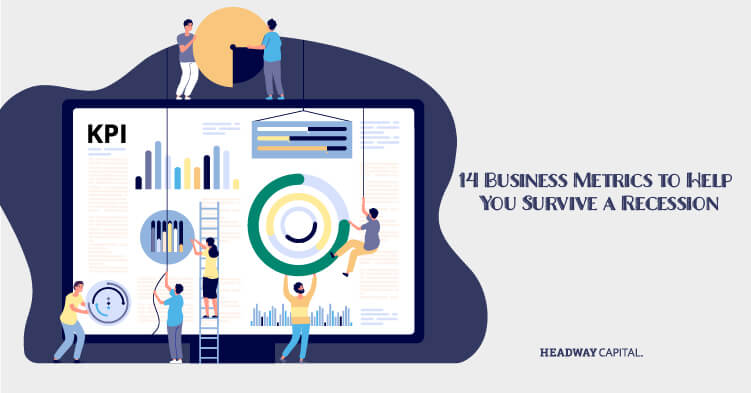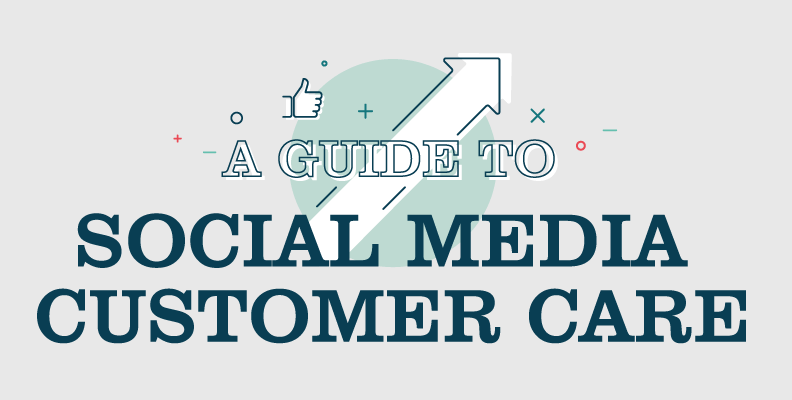Business Metrics You Should Track During a Recession
Operating a successful small business requires a certain degree of flexibility and willingness to adapt. Although economic instability can make things a lot more difficult, there are measures you can take to be more prepared, even during a recession.
While your specific business needs will vary, we’ve gathered a list of resources for some of the most important small business metrics to measure during an economic recession.
Economic Statistics That Can Impact Your Business
The nation’s economic health can have an enormous impact on your small business, from your ability to secure funding to reduced sales and slower rates of growth. While you can’t control these outside factors, you can use them to plan, trim your budget and adjust your business to be successful in a recession.
Unemployment: The national- and state-level unemployment rate can give you a big-picture look at the economy. When unemployment is high, people tend to spend less money.
Consumer spending: According to recent data, consumer spending accounts for roughly 70 percent of the country’s overall economy.1 In general, when consumer spending is down, this may be another sign to plan and reduce your budget in order to prepare for possible lower sales.
Local economic status: Small businesses often operate in one central region or area, so it’s helpful to keep track of your local economic stability. You might be able to find information like the local unemployment rate, average annual salary, new commercial and residential developments, citizen demographics and population changes, from the chamber of commerce departments in places where you operate. This localized information can give you a better picture of your region’s economy.
Financial Metrics
You should always keep a close eye on your finances, but operating a small business during a recession makes planning, tracking and budgeting your finances even more important. Similar to other metrics on this guide, it’s a good idea to track any metrics that may apply to your business, whether or not you’re in the middle of a recession. However, the following areas are particularly important when business is slow.
Cash flow: According to a recent study, 82 percent of small businesses fail because of cash flow issues.2 While this is an important metric for any small business, a recession can worsen a cash flow shortage. Planning, reducing your budget, monitoring your cash flow and securing other forms of business funding can help you avoid cash flow problems down the line.
Invoices/receivables: If you use invoice financing, your customers may take longer to pay during a recession. You may want to consider altering your payment terms if this becomes a problem. Make sure to track any unpaid invoices and receivables for your small business.
Profit margin: Slow sales, increased cost of goods and lower consumer confidence can all affect your profit margin. Keep an eye on the long-term viability of your company with your profit margin.
Inventory/Order Statistics
If you sell goods, some (or all) of these metrics can help you run your small business, whether or not you’re in the middle of a recession. Ideally, you can compare the data to healthier economic times in order to see whether or not your business has been affected by the recession.
Cost of goods sold: You can keep an eye on your bottom line with your cost of goods sold (COGs) that accounts for the total cost of an item you sold, including its overhead, labor, shipping and storage cost, compared to its price.
Inventory turnover: This number measures how quickly your business is able to sell goods in a specific time period. Your turnover rate is an important metric to help you make sure you’re not over- or under-ordering/producing.
Customer Behavior Metrics
If you sell products online, you may be able to track customer behavior statistics with a convenient digital tracking platform or software. Additionally, some point of sale (POS) systems include customer tracking features that can give you more insight to the behavior of your customers. Tracking the following metrics during a recession can help guide your decisions and marketing strategy.
Average order value: You can determine whether the recession has an effect on the amount that customers typically spend at your business.
Most popular product/service: Track which item or service is most popular so that you can leverage this product for future promotions or sales.
Customer frequency: Have you noticed a decline in your returning customers? Is your average order value lower than usual? If your customers don’t visit your small business as often, look for ways to increase the average order value.
Online/Website Metrics
If you have a website or sell online, you should use some type of website traffic diagnostic program that can give you specifics about your online presence. Software like Google Analytics or Adobe Analytics can give you a big-picture look of some important website metrics. Additionally, your social media engagement can give you more insight on your customers, brand awareness, trends and more.
Conversion rate: Conversions typically refers to how many of your website visitors ultimately made a purchase, but you can also track conversion rates for other landing page actions, like survey completions, form entries, registrations, downloads and more.
Website traffic, page views and bounce rates: These metrics can give you an idea of how well your website performs, so you can adjust or add content accordingly.
Social media engagement: Social media post shares, likes, mentions and link clicks are all examples of positive social media engagement. Track your social media effectiveness with these metrics.
Email marketing engagement: You can keep track of engagement with metrics like your email open rate, click-through rate, bounce and conversion to measure the success of an email or larger marketing campaign.
References
1Ryssdal, K. and Hollenhorst, M. (2020). What’s gonna happen to the consumer economy?
2U.S. Bank. (2020). Small Business Survey.






